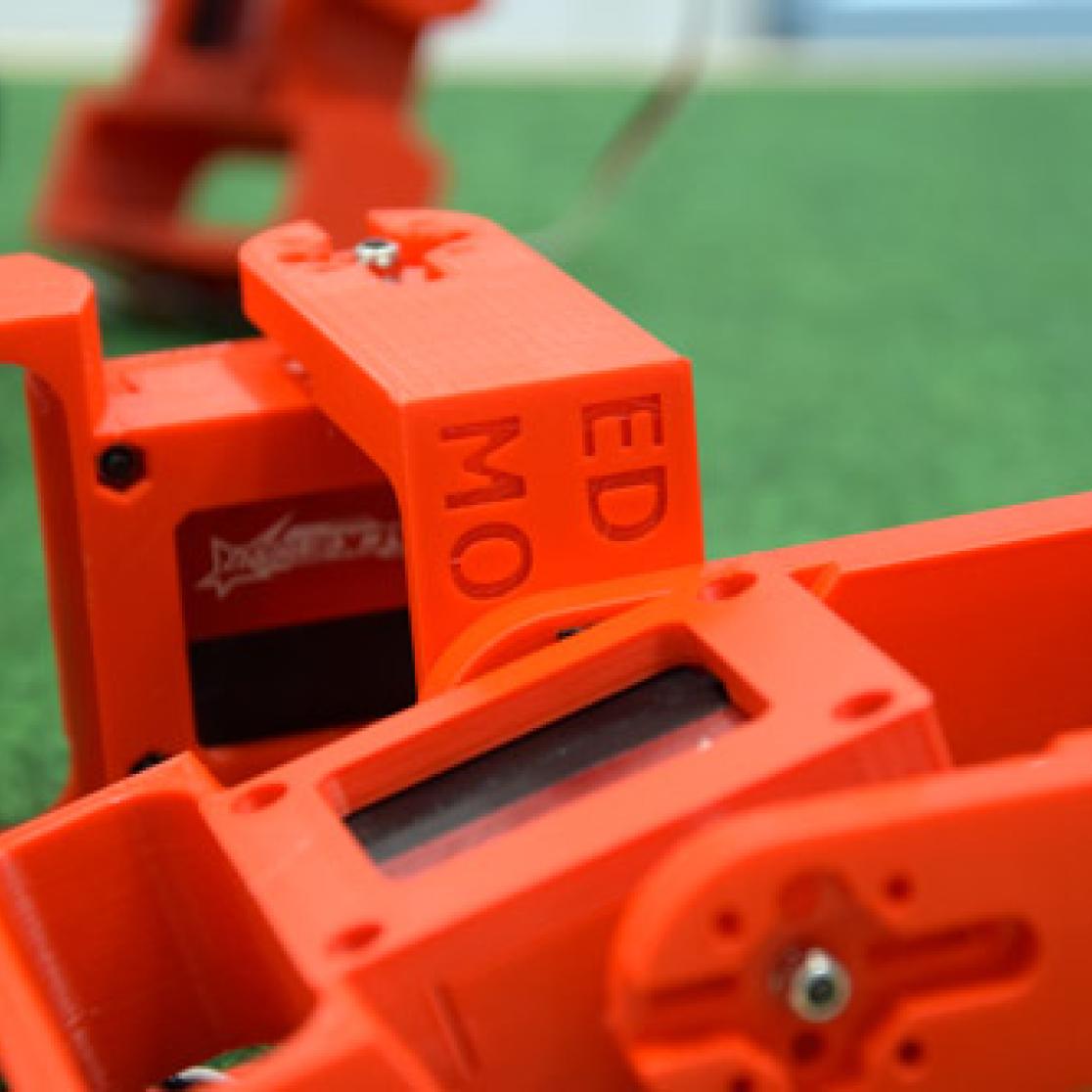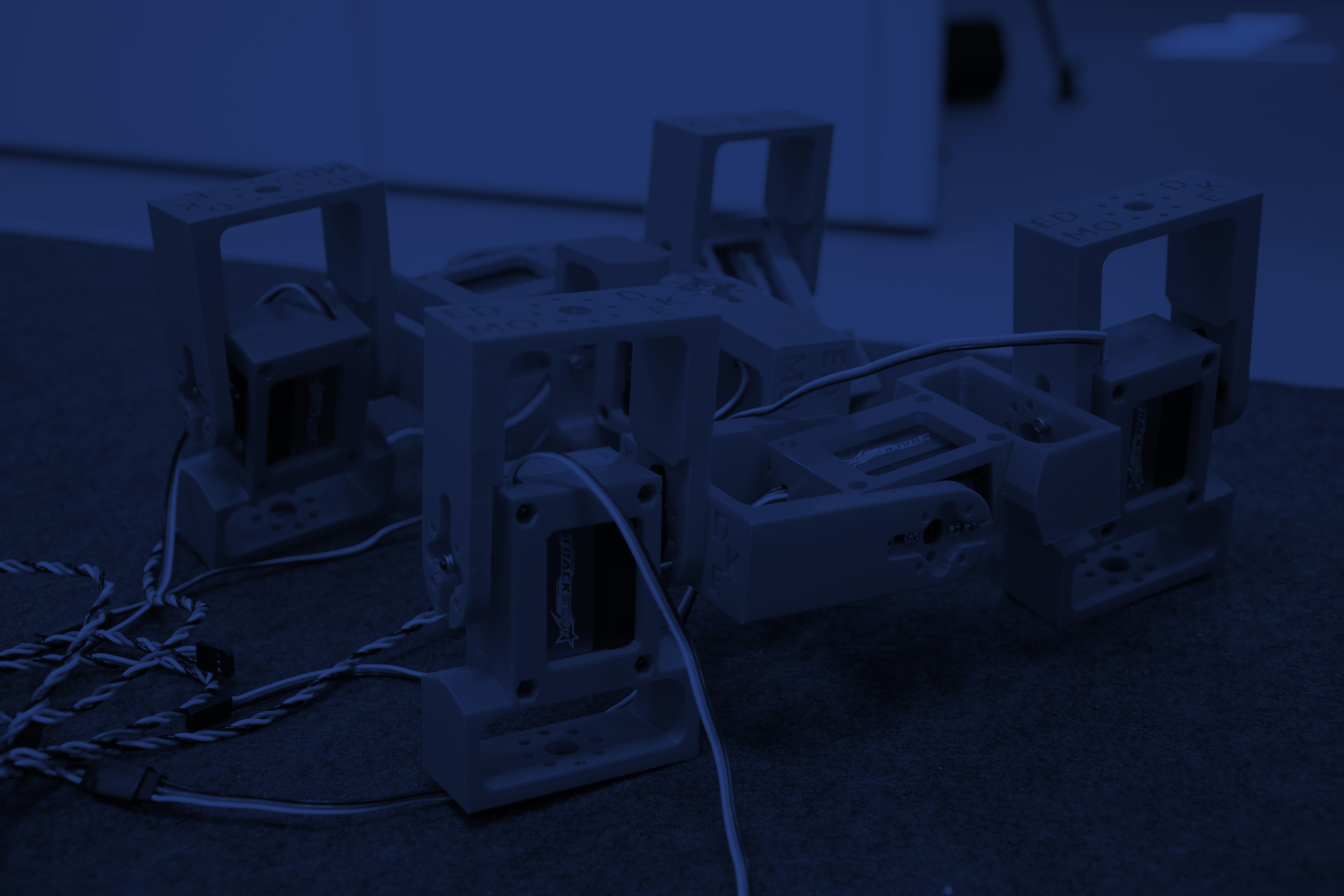EDMO
Educational Modular Robots @ SwarmLab
EDMO is a custom-made EDucational MOdular robotic platform developed for robotics education at Maastricht University. The EDMO platform is designed as a versatile, modular robotic platform that allows students to construct and explore a variety of robotic morphologies including snake, biped, and quadruped configurations.
The philosophy behind EDMO is that students should be allowed to make and learn from mistakes. The modules combine low-cost off-the-shelf servo motors with low-cost custom-made 3d printed shells. To drive the EDMO robots, low-cost off-the-shelf electronics provided by Arduino are being used. EDMO modules are easy to reproduce, repair, and modify.
EDMO is developed by the SwarmLab of Maastricht University's Department of Advanced Computing Sciences.
Quick navigation
Examples of student solutions
Students have already built many different EDMO configurations, which use varying ways of locomotion. The example video shows crab, walker and puppy-like locomotion.
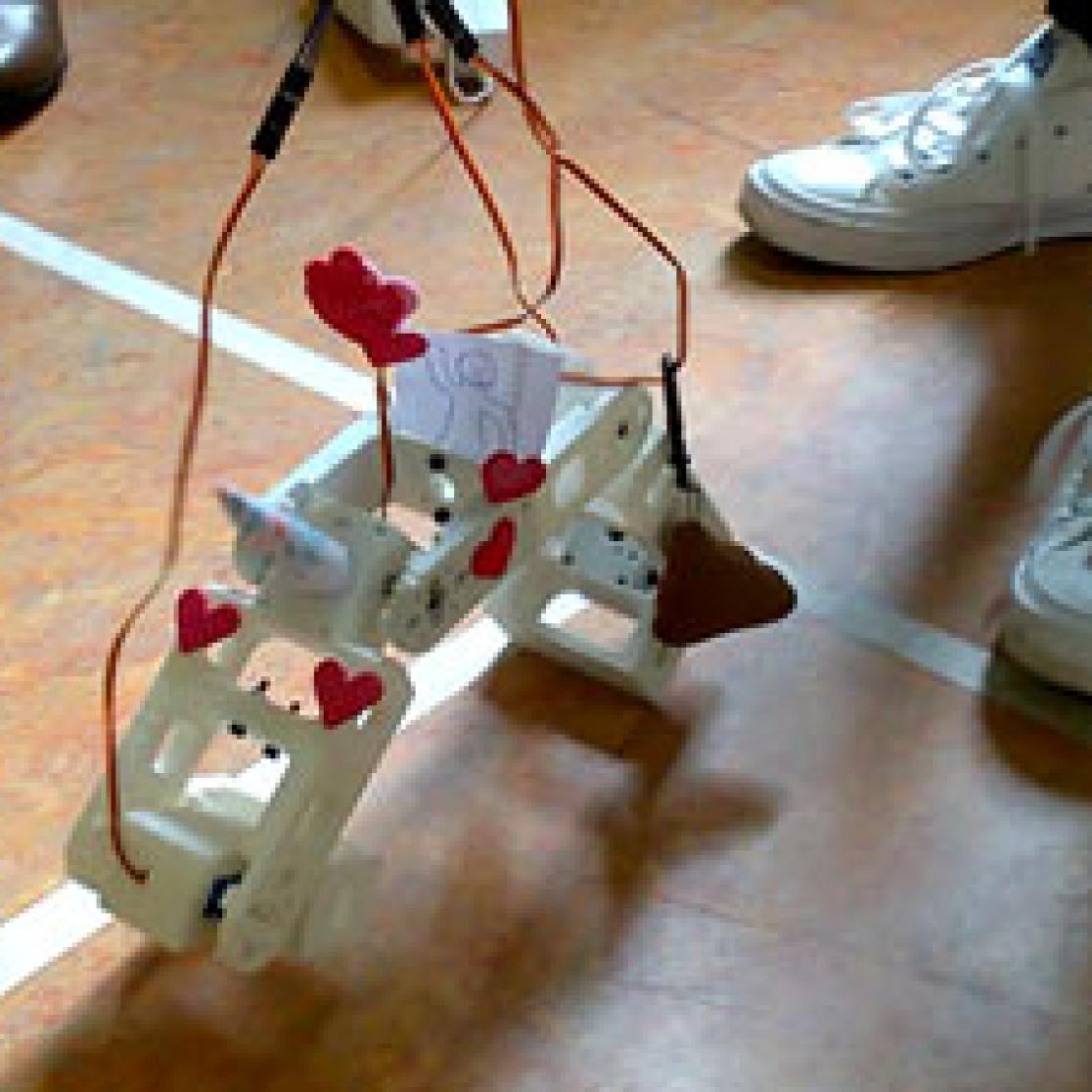
EDMO platform
EDMO - Robot Module (EDMO-RM)
One component of the EDMO platform is the EDMO-Robot Module. It combines a low-cost off-the-shelf servo motor with a robust custom-made 3D printed housing. EDMO-RMs have a single hinge joint and can be easily connected via multiple docking connectors to form a variety of more complex robot configurations such as robot arms or snake-like structures to study control of (inverse) kinematics or locomotion.
EDMO-RM’s were designed so that their assembly and disassembly, as well as their combination to robot configurations can be done even by unexperienced students.
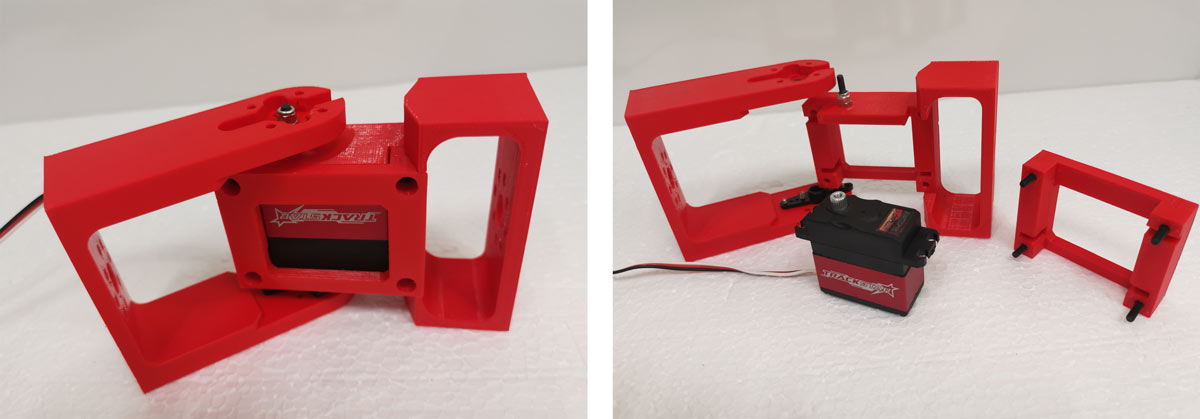
EDMO - Motor Module (EDMO-MM)
Together with the EDMO-RM, the EDMO Motor Module forms the educational modular robotic platform EDMO. The EDMO-MM combines a DC motor with a rotary encoder and offers a robust tool for the education on PID motor control. Both DC motor and rotary encoder are embedded in a custom-made 3D-printed housing. The design without mechanical limits supports continuous rotation and thus lowers the risk of motor failures.
We provide an Arduino template for the implementation of a PID controller: Arduino Template PID
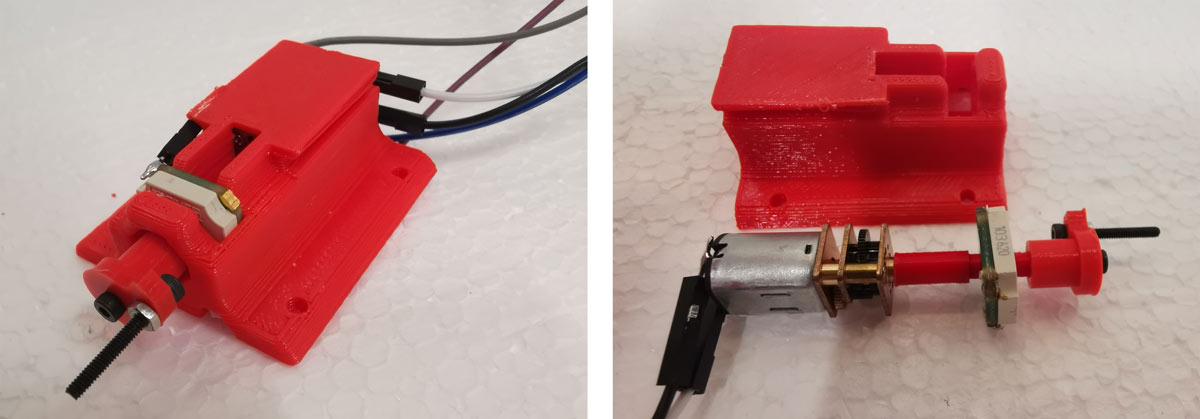
EDMO - Box
EDMO-Boxes provide EDMO modules and all required hardware components to students in a kit like format. EDMO-Boxes contain two or three EDMO Robot-Modules, one EDMO-Motor Module as well as all hardware components to operate them.
A detailed list of all EDMO-Box components can be found here: Download list of EDMO-Box Components
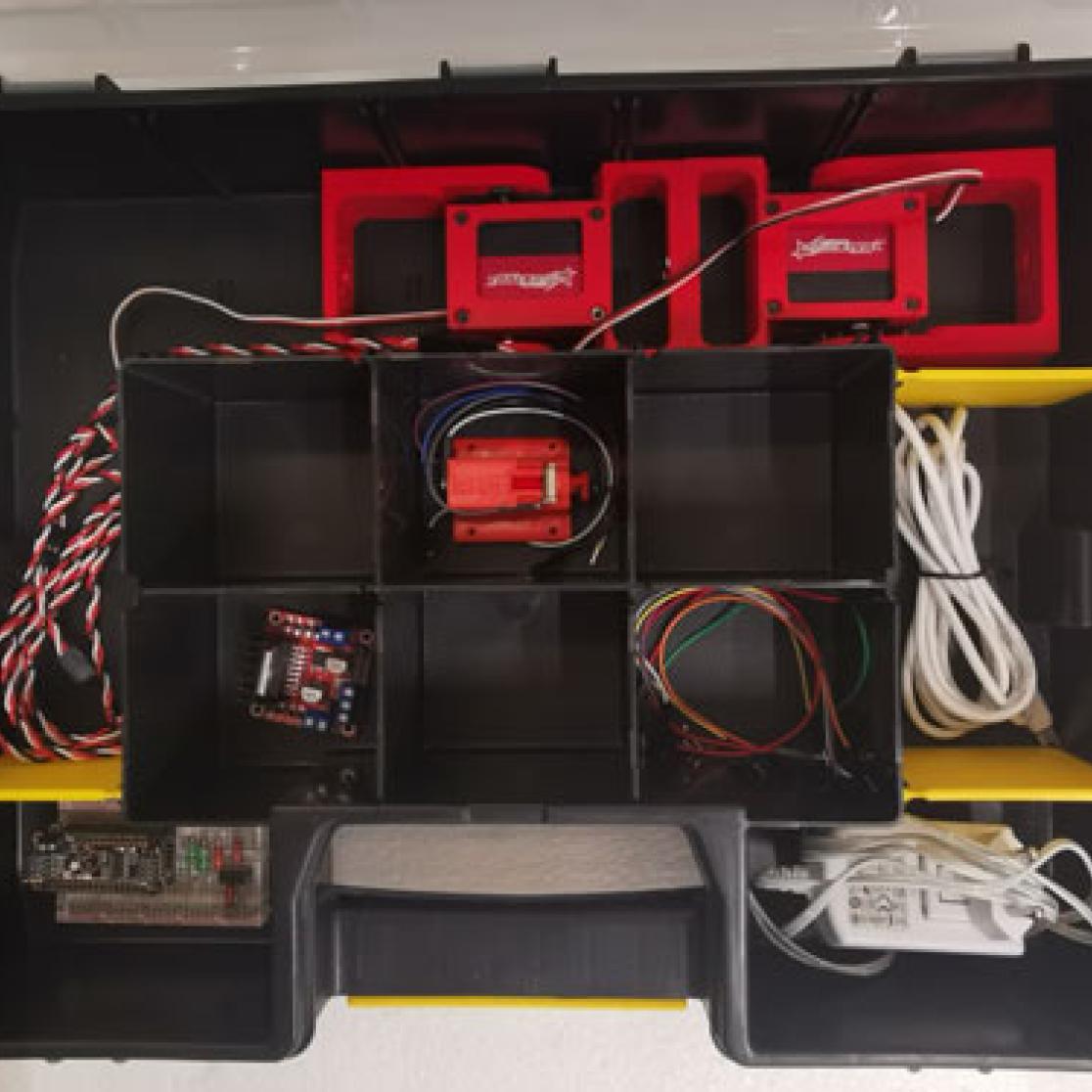
Robot Configurations
EDMO-RM’s modular design supports a variety of robot morphologies and functionalities including robot arms (top left image) for studying control of (inverse) kinematics, and snake-like structures (bottom right image) as well as biped and quadruped configurations (top right and bottom left image, respectively) for studying locomotion control.
The modular design approach allows combining EDMO modules of different generations and the easy exchange of malfunctioning robot modules.
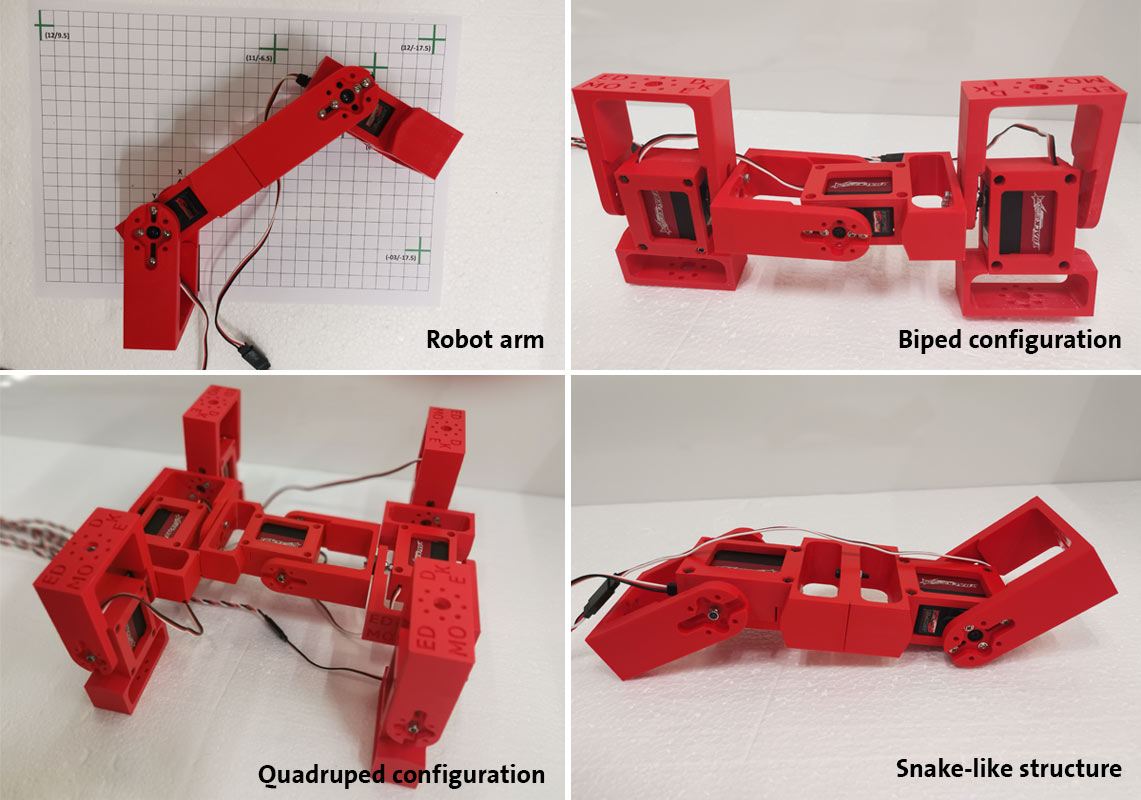
<a name="download"></a>Download EDMO materials
EDMO materials are free to use. Please acknowledge the DKE SwarmLab at Maastricht University and/or cite our associated publications if you use or build upon these materials.
| Download 3D printing and design files EDMO v1.0 |
| Download 3D printing and design files EDMO v1.1 |
| Download the bill of materials (for EDMO v1.0 and v1.1) |
<a name="publications"></a>Associated publications
- Möckel, R., Dahl, L., Boonen, D., Parren, D., & Gou, Y. (2021). Robotics Education Under COVID-19 Conditions with Educational Modular Robots. In M. Malvezzi, D. Alimisis, & M. Moro (Eds.), Education in & with Robotics to Foster 21st-Century Skills: Proceedings of EDUROBOTICS 2020 (Vol. 982, pp. 26-38). Springer, Cham. Studies in Computational Intelligence Vol. 982
https://doi.org/10.1007/978-3-030-77022-8_3 - Möckel, R., Dahl, L., & Mariyam Christopher, S. (2019). Interdisciplinary Teaching with the Versatile Low-Cost Modular Robotic Platform EDMO. In M. Moro, D. Alimisis, & L. Iocchi (Eds.), Educational Robotics in the Context of the Maker Movement (Vol. 946, pp. 135-146). Springer, Cham. Advances in Intelligent Systems and Computing
https://doi.org/10.1007/978-3-030-18141-3
